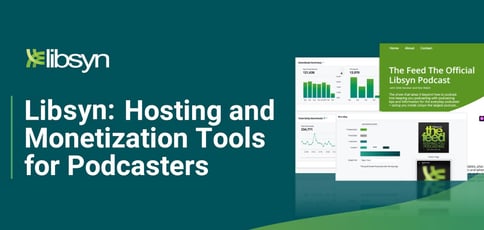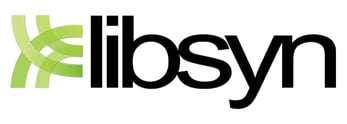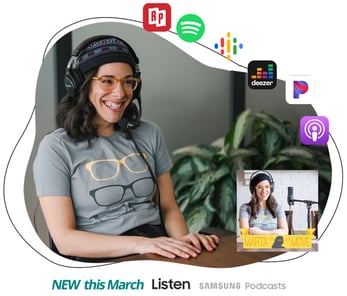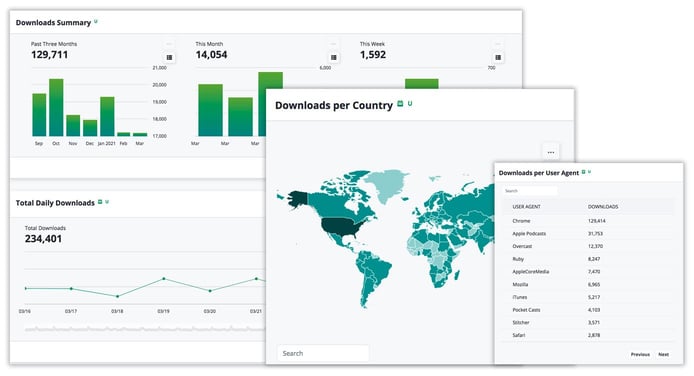
TL; DR: Libsyn is a major player in the podcast hosting industry, and was around well before many of today’s most well-known distributors. The Libsyn 5 platform empowers independent content creators with rich hosting and analytics services. Libsyn also delivers targeted episode performance metrics and advertising services to help creators monetize their shows. The company continues to refine its products, aiming to create a one-stop solution for recording, syndication, analysis, and monetization that works for podcasts of any size and complexity.
Podcasting is a popular medium today, but in 2004, it was a fringe hobby dominated by tech enthusiasts. Now the industry is growing exponentially, and Libsyn has been a podcasting pioneer since the early days.
Libsyn launched in November 2004 as a passion project developed by a few college students from Pittsburgh. It has since grown into one of the most trusted platforms worldwide for podcast hosting and analytics.

“We’re one of the largest running podcast hosting companies,” said Elsie Escobar, Community Manager for Libsyn. “We started as a paid service, and I think that was one of the biggest differentiators because a lot of folks were using the free products to start. And those are the ones that, generally, go by the wayside.”
Libsyn met an early need for podcast hosts and distinguished itself through auto-generated feeds that pushed podcasts directly to third-party podcast directories.
“It was a little harder before iTunes came on the scene,” Elsie said. “We were one of the very first podcast hosts out there. The others made people hand-code their feeds, but Libsyn created the feed, so you didn’t have to figure out all that stuff. It would do all the things that you needed.”
Today, Libsyn offers comprehensive podcast hosting services, including analytics, aggregation, monetization support, and detailed episode data. The company currently hosts more than 75,000 active podcasts and continues to innovate tools that will satisfy the future needs of hosts.
“Our value proposition is democratizing audio, especially for independent creators,” Elsie said.
Podcasting Infrastructure Continues to Evolve
Podcasters typically transmit audio files to an aggregation service, including Apple Podcasts, Stitcher, or Spotify, through an XML feed. Those feeds are usually RSS links. Although the heyday of using RSS for news feeds has passed, the protocol is still widely used for podcasts. RSS feeds effectively push episodes to aggregators, regardless of whether creators self-host or use a podcast hosting company.
In the early days of podcasting, tech-minded creators had to do everything by hand. Often, they’d self-host an MP3 on their blog site and hand-code the XML tags for the show so that the RSS feed would properly recognize them. Then, creators had to manually submit shows to all the popular aggregators and supply their own RSS feeds to make the magic happen.

Today, an entire ecosystem of podcast hosts simplifies the process, although the technology behind them remains largely unchanged. Modern creators distribute their podcast the old-fashioned way or rely on a network of partners to simplify hosting, distribution, and analytics.
Those partners either do everything on the creator’s behalf, or they fill in the gaps. Podcasters can use Libsyn for analytics and syndication or just for hosting.
“Early podcasters were techies,” Elsie said. “They reveled in hand-coding their feeds. But to support independent voices — which is where the name Libsyn comes from, liberated syndication — our guys created this business.”
Libsyn liberates creators from the onus of in-depth technical knowledge. Any user who can record an MP3 can generate a podcast without hand-coding RSS and XML files or manually submitting complex data strings to a dozen aggregators. Although old-school techies can still do everything by hand, Libsyn offers a range of services and support to balance a creator’s needs against his or her technical competence.
Hobbyist Podcasters Need Content-Creation and Monetization Support
According to Elsie, the world of podcasting is divided into two cohorts: the independent creators, who often work on shoestring budgets, and the “One Percenters,” high-performing podcasts that come from public media and public radio. Those podcasts feature high production values and significant behind-the-scenes funding that enable them to scale quickly.
“It’s sort of like the Serial’s of the world,” she said. “But the 99% are the everyday podcasters who are creating content for themselves that they may or may not want to monetize. They create wonderfully produced and creative products.”
Two factors are crucial to audience growth for everyday podcasters: reliability and real-time metrics. A reliable show does not incur technical glitches between release and consumption at scale. Shows that experience coding or process failure anywhere in the process tend to disappoint listeners who expect high-quality and reliable releases for every show.

The real-time metrics drive marketing and monetization. The modern podcast market is competitive. The most reliable estimates suggest that in 2018, there were more than 500,000 shows with a cumulative episode count of 18.5 million. By 2021, that number had grown to more than 48 million. Roughly half of all U.S. households listen to podcasts, with 24% listening to at least one podcast per week.
Podcast listeners are more likely to be college educated and active on social media and slightly more likely to be male than the population average. That combination of attributes makes the market a prime advertising target, but without reliable insight into which episodes perform well, creators cannot optimize their monetization potential.
“I think that most podcasters are what I call little stats addicts,” Elsie said. “As soon as they release, they’re curious about download impressions. We’ve always been able to have robust data to support episode performance.”
In addition to data, Libsyn is passionate about privacy. The company ensures that IP information does not come through, so listeners can’t be tracked or profiled for marketing purposes.
Although some podcast distributors can execute internal tracking to support their own business analytics, this information never flows through to the podcaster.
Libsyn: Helping Independent Creators Thrive in the Industry
As podcasting technology continues to evolve, the hosting market has evolved along with it. Today, content creators have access to an ecosystem of products and services that help them push content without a significant amount of technical knowledge.
Libsyn, which launched at the beginning of the podcast era, delivers a rich set of hosting and analytics solutions to help all creators, regardless of their technical prowess, thrive in the podcast market.
Libsyn pays special attention to independent creators. The company’s platform delivers intuitive solutions that provide relevant metrics and empower the advertising that helps indie podcasts thrive. Its episode performance metrics also help creators understand what does and doesn’t work with programming at a granular level.
“Our vision is to have a solution for whatever problems podcasters are coming up against,” Elsie said. “If there’s something they would like to do to scale, we can tell them what they need to do. Those who don’t want to do all the complex tasks can keep doing simple engagement and make it easy and powerful.”
The company acquired a hosting provider (pair Networks) the advertising network (AdvertiseCast) and a podcast monetization platform (Glow.fm). Those acquisitions, and its ongoing platform development, aim to deliver an all-in-one platform for podcast creation, hosting, analytics, advertising, and community building.
HostingAdvice.com is a free online resource that offers valuable content and comparison services to users. To keep this resource 100% free, we receive compensation from many of the offers listed on the site. Along with key review factors, this compensation may impact how and where products appear across the site (including, for example, the order in which they appear). HostingAdvice.com does not include the entire universe of available offers. Editorial opinions expressed on the site are strictly our own and are not provided, endorsed, or approved by advertisers.
Our site is committed to publishing independent, accurate content guided by strict editorial guidelines. Before articles and reviews are published on our site, they undergo a thorough review process performed by a team of independent editors and subject-matter experts to ensure the content’s accuracy, timeliness, and impartiality. Our editorial team is separate and independent of our site’s advertisers, and the opinions they express on our site are their own. To read more about our team members and their editorial backgrounds, please visit our site’s About page.



